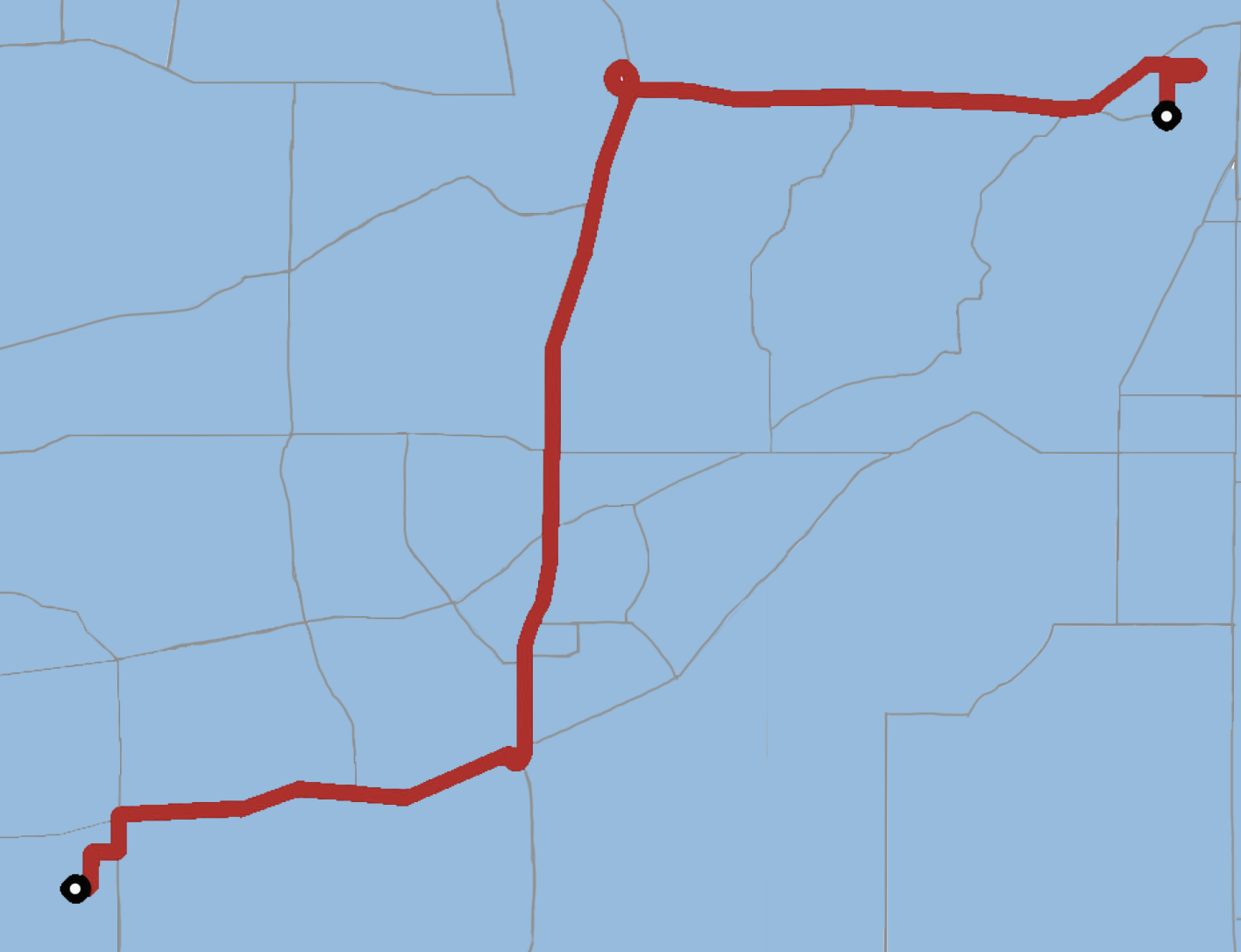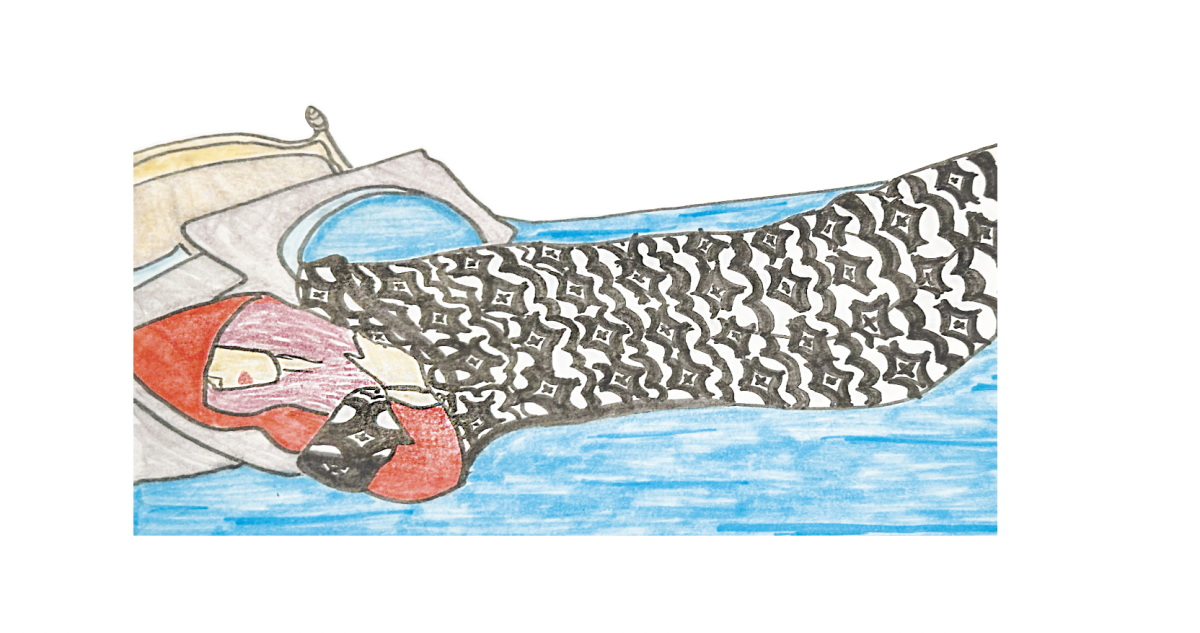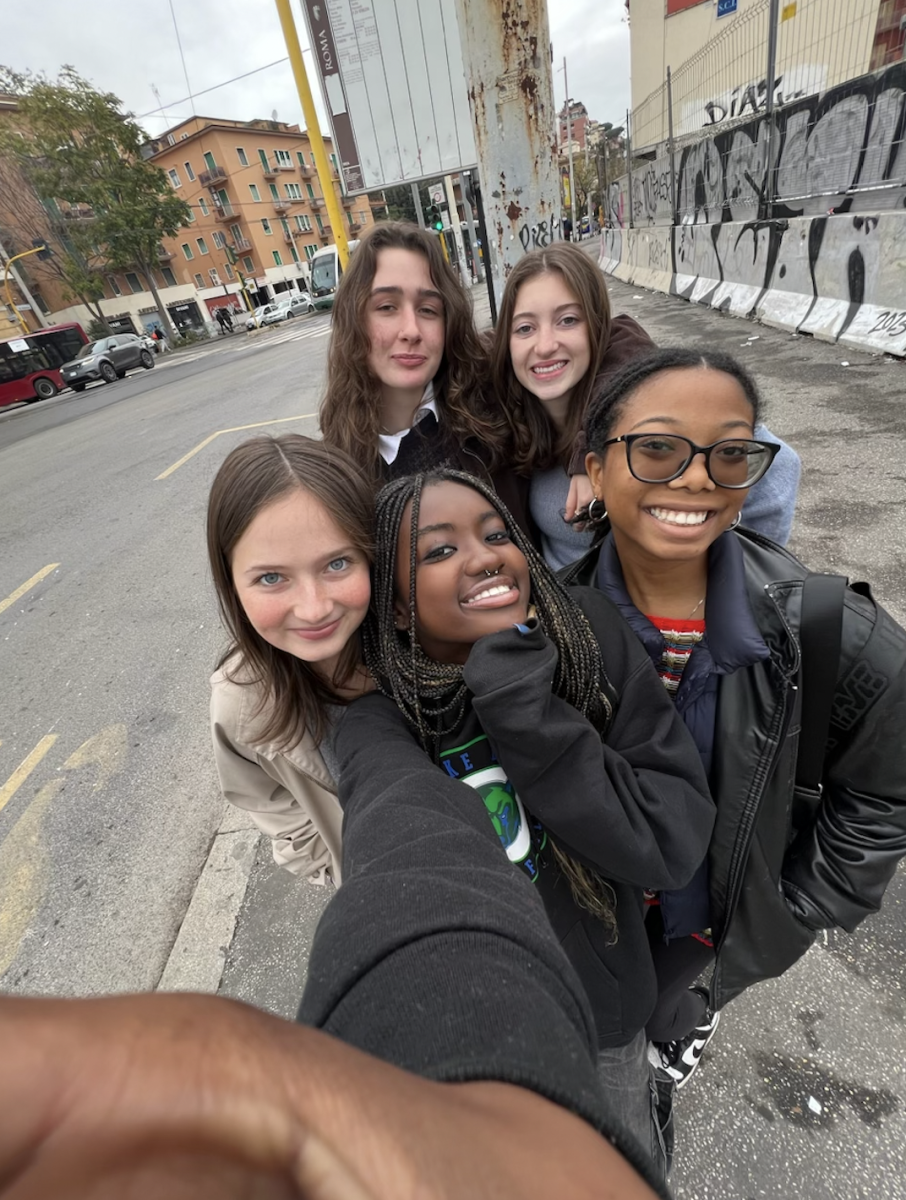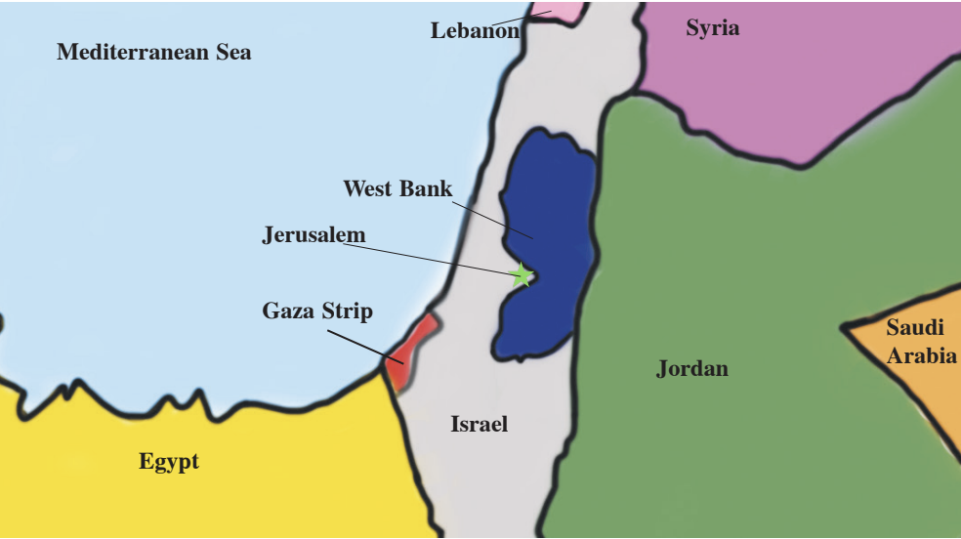
GPS apps are a useful tool that helps us in getting from place to place. Studies from the “United Tires Library” show that 60% of Americans use GPS apps and that 63% are Google Maps users. Apple Maps is the next closest with 14%. But what about the 40% that doesn’t use GPS? What are the alternatives besides apps?
Two alternatives are physical copies of maps or memorizing the area you are driving in. Molly Seidel ‘24 says that she uses GPS about “three times a week” but otherwise she has memorized how to get from place to place. What about physical maps? Karin Lund ‘25 describes the process of using a physical map as “troubling.” Kyra Sharma ‘25 agrees by describing the experience of using maps as “interesting.” “It was just a little different, but I don’t think it really changed much. It was just like I had to figure out where I was going more than the map told me,” said Sharma. Sinclair Christie ‘26 thinks apps are “a lot easier and it actually tells you where you’re going and where you are” versus “on the physical map you have to like find out where you are and then where you are going.” Lund prefers the app Waze because “it gives the fastest routes,” which avoid things like construction. However, Sharma prefers Apple Maps based on habit, “I’ve always seen my parents use it when I was younger, so I started using it and now I don’t want to change.” Seidel prefers Apple Maps “because I use a lot of the Apple Apps in general. I don’t really have a reason to, I just feel like they’re very easy to use because they were already downloaded on my phone.”
The parking lot Blake rents for students to park in has been in and out of the spotlight because of crime rates in the past few years. Thankfully, it’s less of an issue this year but lead security guard Rio Hanson still has some pointers for students to follow in order to minimize their chances of being the target of a carjacking, which she explained at an assembly earlier this year. “[The break in rate] is a bit higher just because we were not quick to deliver the message to students to have common sense and not put valuables in the car within eyeshot of people walking past. Since we’ve had that assembly meeting, we’ve had no break-ins.” At the assembly, Rio asked students to lock their cars.
While the security team works very hard to keep the parking lot safe, there’s only so much they can do, so it’s ultimately up to the students to make sure their vehicles are safe. These are very easy and important things to do. The few seconds it takes to make sure your car is locked or that you didn’t leave your Airpods sitting out on the dashboard will save you hours of panic and worry about if your car is safe.
From an Instagram account showcasing poor parking jobs, to routine accidents, the student parking lot has received a lot of attention. The account @blakeparking shared nine posts of students’ cars parked crooked and in between spots before becoming inactive. Though the posts served as comedic relief for most students, it exposed the blatant issue of students disregarding the basic courtesy of parking within the lines. Being able to successfully park, and correct parking by straightening out, is a necessary skill. Ellie Schifman ‘24, a pro-parker, gives tips on how to park well, saying, “I think that it just takes a lot of practice to get good at.”
As classes end at 3 pm, the parking lot floods with students heading to sports practices and excited to get home. Between distractions from friends and the many cars all leaving at the same time, accidents occur far too often. Kiana Poul ‘24 routinely parks in the small neighboring lot due to the traffic that occurs, saying, “I have parked in the main lot a couple of times and each time I do that even if I’m able to park at the front of the lot you can’t ever reverse because there’s a whole slew of cars trying to pull out of the lot…So it ends up being a fifteen minute situation that I don’t want to deal with after school.” Poul notes that the setup of the main parking lot brings downfalls to any spot. “If you’re parked at the back of the main lot that’s better but then you have a long walk and in the winter it’s not ideal. So I choose the side lot because I know that I can get out right away at the end of the day.”
“I’ve almost been involved in a few [accidents]. On one occasion a couple weeks ago, I was reversing and this person was speeding in the parking lot. Luckily I saw him, so I stopped, because I guess he does have the right-of-way, but the audacity to be going that fast is just ridiculous,” said Poul. This scene is all too common in the parking lot, causing students to be involved in dangerous collisions.
The idea of sharing cars, utilizing public transportation, and foregoing a personal vehicle altogether have long been touted as potential solutions to fighting off our ever changing climate. While that may be true, as I reflect on my three years of carpooling I recognize further benefits in my social and psychological health and wellbeing.
As the hot late-August days signaled the beginning of my sophomore year, I joined a carpool composed of me, Molly Seidel ‘24, Mackenzie Higgins ‘24, Noor Naseer ‘22, and Maya Sullivan ‘25. Unbenounced to me, this group of four girls, who together sped through the HOV lane and stopped at Panera all too often, would become some of my best friends. Aptly named the ‘Party Bus,’ each day I would exit school frustrated or ecstatic about my American Literature paper or my upcoming APUSH test, rant though the drive, and receive advice. When I would collect my thoughts I would, more often than not, act on the advice and become a better learner for it. I learned how to navigate challenging social situations, reconcile with less-than-great test scores, more effectively complete my homework assignments, and received advice on what seemed like an overly complex schedule for the next year.
As sophmore year ended and the hot August heat once again approached, I began a new carpool. This time, as an upperclassman I provided advice, but I was reciprocated with new perspectives from those younger than me: how to navigate certain situations, and approach days I was struggling to manage my workload and sport. My carpool provided an outlet, not only for advice, but for laughter, friendship, and a place to decompress and reflect.
Payton Smith ‘24 “talk[s] about honestly everything there is, from sports, to friends, to teachers” during her carpool rides to soccer practice. I’ll get in the car and be in a horrible mood and [Reese Aafedt ‘27’s] whole goal is to cheer me up so she plays absurd music [with the] windows down. Every once in a while the roles are reversed and she’s in a bad mood so I do the same for her.”
Cross-grade friendships are undoubtedly a hallmark of my Blake experience, but would not have been so pervasive nor impactful if not for carpool. “Being able to connect with people who aren’t in your grade is just beneficial because you get to see a new perspective on things,” Jada Chenitz ‘25 said. “My first year I was carpooling with… Remy Abraham ‘23 and we made such a good relationship. She would pick me up from school, we would get food after school, in school we would talk…I still text her every single week if not every day… we still tell each other everything. I know everything about her college life and she knows everything about my life here.”
I have yet to get my license, but I could not be more grateful for the relationships I’ve formed through my lack of automotive freedom. “We have that one song, Even When I’m Leaving by Luke Combs…Every time that comes on we both start crying. It’s a sad moment, but it’s also a really cute bonding moment that I’m never going to forget,” Smith said.









